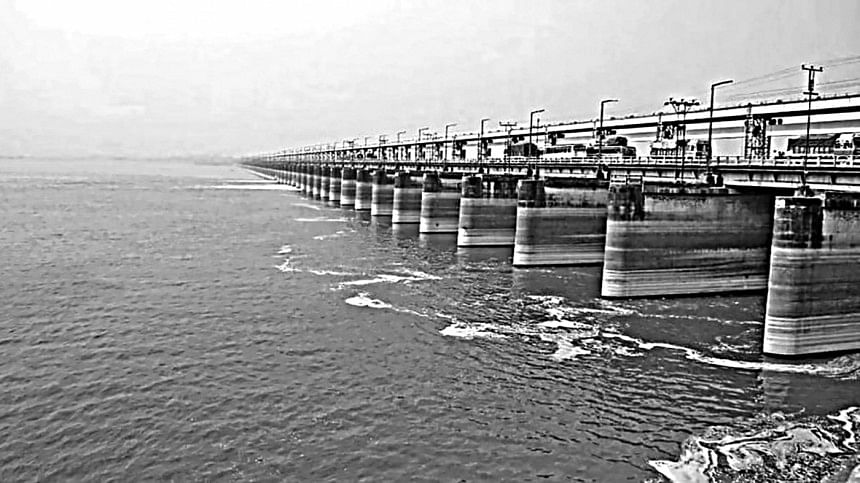Rethinking the Bangladesh-India water politics

To strike an equitable water-share mechanism between Bangladesh and India, the Joint Rivers Commission was formed in 1972, and the Ganges Water Sharing Treaty was approved in 1996, establishing a structure for collaboration between governments. Nevertheless, whenever India discharges upstream water without prior notification, Bangladesh encounters catastrophic floods (the recent flood being illustrative), exposing the constraints of the existing deal. The historical conflicts between the two countries highlight the crucial importance of ensuring fairness in the administration of water resources following international legal standards that forbid any state from unfairly exploiting shared resources.
To prevent future calamities, it is crucial for Bangladesh to promptly create legally enforceable agreements with India about water sharing and flood management, considering the existing limitations. The importance of political will, legislative reforms, and detailed processes in diplomatic terms cannot be overstated. The current bilateral agreements between India and Bangladesh must be updated to incorporate legally binding methods for resolving disputes. Diplomatic channels have to be used more effectively to deal with unresolved matters, such as unexpected water spills or intentional or unintentional withholding of important information. In the light of the shifting political conditions, the need for greater cooperation and more robust framework to ensure the same are a must.
The primary objective of the 1997 United Nations Watercourses Convention is to provide fair and responsible management of shared water resources, with a focus on reducing negative effects on neighbouring countries. To prevent the evasion of punishment and guarantee responsibility, any forthcoming agreements between Bangladesh and India must incorporate obligatory dispute settlement processes.
In addition to adopting legally binding agreements, both countries must implement steps such as exchanging real-time data, establishing early warning systems, and utilising modern technology such as satellite monitoring and predictive modelling to reduce the impact of floods efficiently. By engaging in these cooperative endeavours, Bangladesh and India have the potential to significantly mitigate the destructive effects of floods on both human lives and economic operations, offering hope for a more secure future.
The recent floods clearly indicate that natural calamities can significantly influence geopolitical dynamics and contribute to regional instability. The necessity for more stringent legal frameworks, heightened cooperation, and augmented shared accountability mechanism between the two nations has reached a level of utmost importance.
The writer teaches law at World University of Bangladesh.

 For all latest news, follow The Daily Star's Google News channel.
For all latest news, follow The Daily Star's Google News channel. 



Comments